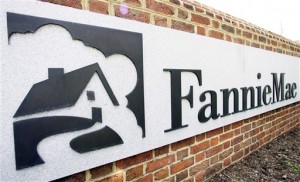 Senate Bill No. 414 was introduced to address some of the consequences of the downturn in the current real estate market. Section 2 of the Bill was intended to prevent a bank from calling a commercial mortgage loan due if the borrower is not in default. That section was quickly eliminated by amendment from the final bill.
Senate Bill No. 414 was introduced to address some of the consequences of the downturn in the current real estate market. Section 2 of the Bill was intended to prevent a bank from calling a commercial mortgage loan due if the borrower is not in default. That section was quickly eliminated by amendment from the final bill.
SB 414 mandates lenders respond to short sale requests within a reasonable period of time. A “reasonable period of time” is defined to mean a response within 90 days after receipt of the offer, unless the parties agree to a written extension of time.
Section 3 was the gravamen of SB 414. It prohibits a lender from unreasonably delaying a response to an offer for a residential short sale. It further prevents lenders from obtaining a deficiency judgment against a borrower in certain instances.
The Nevada Senate Committee on Commerce, Labor and Energy (the “Committee”) (where the bill originated) was concerned about lenders pursuing deficiency judgments against residential borrowers after they had completed a short sale. Senator Schneider, said the following:
“I was concerned about people who are upside down in the mortgages on their homes, cannot make payments anymore, for whatever reason, and they short sell their home. I do not want banks going after the seller for the difference between what the house sold for and the mortgage.”
The Committee sought to remedy this issue by prohibiting lenders from further pursuing the borrower after the short sale has been concluded, if all the parties agreed.
William Uffelman, President and CEO of the Nevada Bankers Association (the “NBA”), testifying on behalf of the lenders, sought to balance the lenders’ very real concern of potentially having to write down or write off loans to satisfy the FDIC, the Office of the Comptroller of the Currency, or U.S Department of the Treasury, with individuals being forced into bankruptcy or foreclosure while trying to protect their homes.
Typically, lenders that hold first deeds of trust are more willing to forego a deficiency, whereas second deeds of trust holders are less likely to do so. Short sales are often held up because second trust deed holders are more intransigent. Lenders also will seek to take a strategic advantage by delaying responding to the borrower’s overtures for a short sale. SB 414 addressed both issues.
The NBA’s Mr. Uffelman conceded that financial institutions could retain the right to a deficiency judgment right if they responded within a reasonable period of time, and they reserved the right to a deficiency judgment in the short sale agreement executed by all the parties. This allows a lender to pursue a borrower for a deficiency judgment when the borrower makes a “strategic default,” yet it gives most borrowers finality.
As Senator Schneider so eloquently stated, “the concept here is that for all our constituents who are doing short sales, we do not want to leave them hanging there and later have the big bank looking to squeeze more blood out of them.”
Historically, the forgiven or waived portion of a debt is subject to tax as income when all or a portion of a debt has been forgiven by a lender. However, Congress enacted a law in 2007, which does not subject debt forgiveness to tax when the forgiven debt is due to foreclosure. SB 414’s deficiency judgment waiver rules prohibit any debt forgiveness liability under any IRS tax rule changes that may take place after December 31, 2012.
The Committee believed it was not enough for the borrower to depend on a statement of the lenders’ intent to waive a deficiency judgment. The Committee wanted to have all parties state their intentions regarding a waiver of a deficiency judgment in clear and unambiguous language. Thus, SB 414 will require a written, conspicuous statement, acknowledged by the debtor or grantor which states that the lender has waived its right to recover a deficiency and the amount of recovery that is being waived.
SB 414 was approved by Governor Sandoval on June 13, 2011.
Andras F. Babero, Esq.

 Senate Bill No. 414 was introduced to address some of the consequences of the downturn in the current real estate market. Section 2 of the Bill was intended to prevent a bank from calling a
Senate Bill No. 414 was introduced to address some of the consequences of the downturn in the current real estate market. Section 2 of the Bill was intended to prevent a bank from calling a  Black & LoBello has received numerous inquiries regarding the new real estate laws discussed in our
Black & LoBello has received numerous inquiries regarding the new real estate laws discussed in our  Nevada Assembly Bill 273
Nevada Assembly Bill 273 One of the main questions our clients have when they receive an approval on a short sale is, “Does it provide a
One of the main questions our clients have when they receive an approval on a short sale is, “Does it provide a  The time when people once waited on a lottery to buy a home is long gone for Las Vegas. While this may be construed as stating the obvious, one thing that our mortgage crisis has spurred and is not often discussed is that we are now a city of renters. Many do not want to buy homes or simply cannot due to credit and other financial issues. Accordingly, the Las Vegas lessor and lessee must educate themselves about many things prior to picking their temporary abode. The main issues are checking a property’s status entering into a lease agreement, obtaining appropriate documents when leasing with an option to buy, and renting a home to a person currently in the process of buying a negative equity property.
The time when people once waited on a lottery to buy a home is long gone for Las Vegas. While this may be construed as stating the obvious, one thing that our mortgage crisis has spurred and is not often discussed is that we are now a city of renters. Many do not want to buy homes or simply cannot due to credit and other financial issues. Accordingly, the Las Vegas lessor and lessee must educate themselves about many things prior to picking their temporary abode. The main issues are checking a property’s status entering into a lease agreement, obtaining appropriate documents when leasing with an option to buy, and renting a home to a person currently in the process of buying a negative equity property.

 Government sponsored entities (GSE), Fannie Mae and Freddie Mac, both issued new guidelines to servicers on June 1. The new stipulations allow homeowners with GSE owned or guaranteed loans to pursue a short sale or deed-in-lieu of foreclosure if they are unable to secure a modification under the Home Affordable Modification Program (HAMP) program. Both Fannie Mae and Freddie Mac encouraged servicers to begin implementing their short sale and deed-in-lieu procedures “immediately.” By August 1, all Fannie Mae and Freddie Mac servicers must incorporate Home Affordable Foreclosure Alternative (HAFA) into their operations and offer HAFA solutions such as short sale and deed-in-lieu options to eligible borrowers.
Government sponsored entities (GSE), Fannie Mae and Freddie Mac, both issued new guidelines to servicers on June 1. The new stipulations allow homeowners with GSE owned or guaranteed loans to pursue a short sale or deed-in-lieu of foreclosure if they are unable to secure a modification under the Home Affordable Modification Program (HAMP) program. Both Fannie Mae and Freddie Mac encouraged servicers to begin implementing their short sale and deed-in-lieu procedures “immediately.” By August 1, all Fannie Mae and Freddie Mac servicers must incorporate Home Affordable Foreclosure Alternative (HAFA) into their operations and offer HAFA solutions such as short sale and deed-in-lieu options to eligible borrowers.  Fannie Mae announced a reduction in wait time for some borrowers between when they complete a deed-in-lieu of foreclosure transaction and when they can obtain a new mortgage. Previously, a borrower waited four years before getting a new mortgage. Under the new guidelines, a borrower that previously completed a deed-in-lieu of foreclosure can get a new mortgage in two years with a 20% down payment. If the borrower has a 10% down payment the waiting period is still four years. In some situations, the waiting period can be reduced to two years with a 10% down payment after a deed-in-lieu of foreclosure.
Fannie Mae announced a reduction in wait time for some borrowers between when they complete a deed-in-lieu of foreclosure transaction and when they can obtain a new mortgage. Previously, a borrower waited four years before getting a new mortgage. Under the new guidelines, a borrower that previously completed a deed-in-lieu of foreclosure can get a new mortgage in two years with a 20% down payment. If the borrower has a 10% down payment the waiting period is still four years. In some situations, the waiting period can be reduced to two years with a 10% down payment after a deed-in-lieu of foreclosure.
